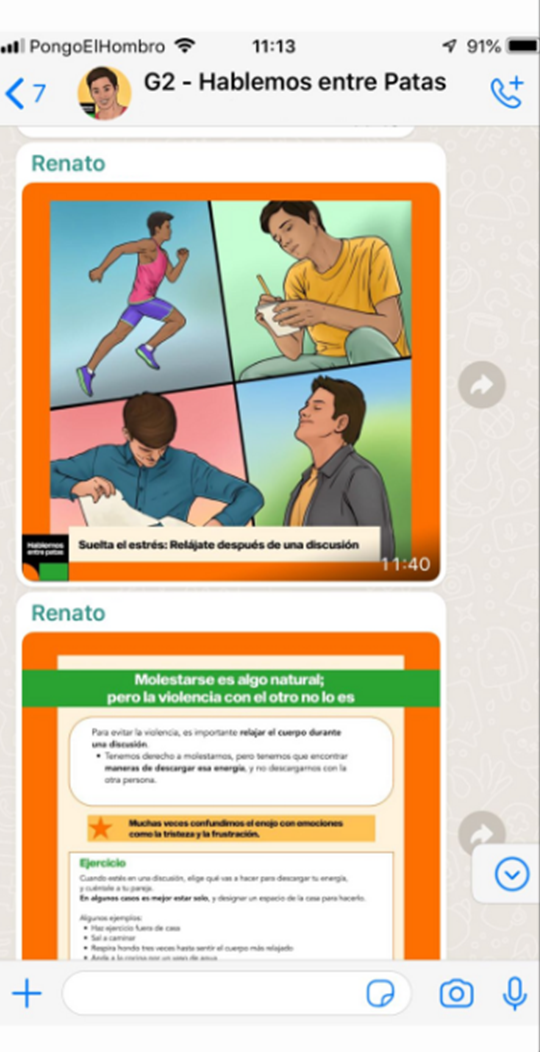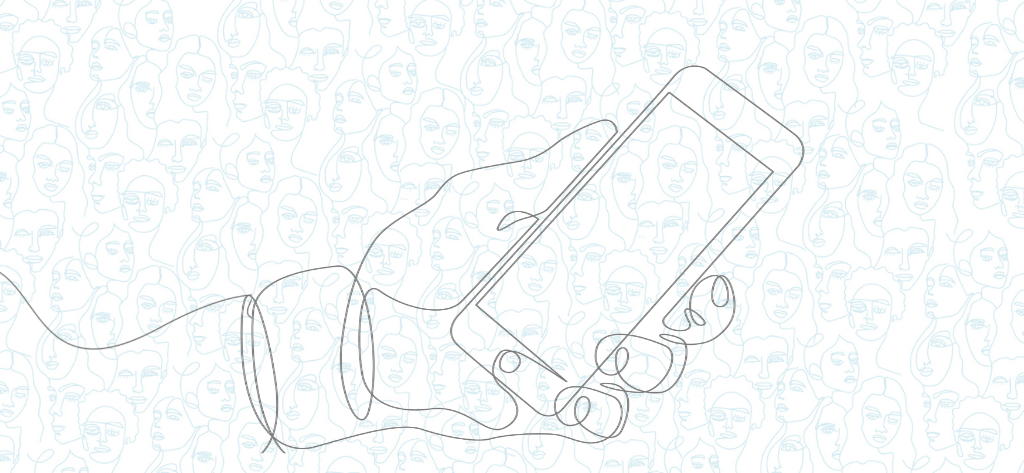The problem with masculinity
Most interventions directed at intimate partner violence are focused on responding to the violence and offering support to victims once it has already happened; but fewer focus on its prevention. To reduce intimate partner violence, it is necessary to direct our efforts towards the most common perpetrators: men. How? There are multiple ways to do it:
- Through primary prevention programs that try to stop violence before it happens. An innovative example in the region is Línea Calma, from the Bogotá city government.
- Another option is secondary prevention, which works with men that are most likely to inflict this type of violence based on previous records and referrals from justice courts to reeducation programs.
- A third option is through tertiary prevention programs that come into action once the violence has occurred, such as bystander programs.
Most existing primary prevention programs promote a critical introspection regarding gender norms among men, while promoting abilities to question harmful norms and interrupting dangerous behaviors at the same time. Though proven to be effective, “Gender-transformative” programs usually have 4 types of characteristics that make them unattractive: they are in person programs, based in small groups, of long duration, and implemented by NGOs. These elements also make these initiatives expensive, with little beneficiaries and hard to scale.
Innovating in the promotion of healthy masculinity

Working alongside Peru´s Ministry of Women and Vulnerable Populations, the International Rescue Committee, and Innovations for Poverty Action, at the IDB we were set on doing something different: developing a virtual program for the promotion of healthy masculinity, at a low cost and with high chances of escalation. That is how “Hablemos Entre Patas” was born, a program that also responded to the need to offer masculinity-centered programs during the COVID-19 pandemic, when other in person programs were suspended.
However, Hablemos Entre Patas has other virtues. It adapts to time availability and location of its users, and allows men to get involved in hard conversations, something they might not do in face-to-face contexts. Last but not least, it offers a clear value proposition, to have healthier intimate relationships, which is of interest for men participating.
The original experience: a project on masculinities in Uganda
The Hablemos Entre Patas program was inspired by a successful experience of the International Rescue Committee and the Innovation for Poverty Action in Uganda, named The Real Man Challenge. The program aimed to produce small changes in men’s attitudes and behaviors through daily content, activities to do with an intimate partner and group conversations led by a moderator.

The design included making WhatsApp group chats involving men, who would receive, over thirty days, tools and advice that are easy to implement, such as how to solve couple conflicts. The content included exercises in challenge format to improve communication and emotional regulation with their partners, improve their life at home, enjoy a healthy sex life and keep better joint finances. At first, the idea was to identify men willing to send the content and moderate group discussions. They would be trained and handed in the material used by the program. Additionally, each of these men would have to invite a group of twelve friends to join the group.
A fast-paced design process to adapt to Peru
However, during the adaptation of the program to the local Peruvian context, we soon realized there where fundamental aspects of the original design that would not work in Peru. First of all, men did not have a group of twelve friends with who they would feel comfortable discussing intimate subjects. Second, some of them were interested in participating in the programs but did not want to be the ones to moderate interactions with their peers or take the responsibility of sharing the content. Lastly, they showed interest in receiving information from experts in the topic, not from any other man.



The fast-paced design methodology allowed us to test and adjust the initial design in several key aspects. We changed the recruiting strategy incorporating the use of paid advertisement on Facebook and from “influencers”, switched voluntary moderators for professional paid ones, incorporated the voices of experts and simplified the communication style to make it casual and more accessible. Flexibility was essential to incorporate the lessons learned until we had a proposal we felt comfortable with, without losing sight of the initial goal of making an intervention that was cost-effective and scalable.
What was the impact on men and their partners?
As a project that seeks to create an innovative method to promote healthy masculinity, it is key to measure carefully the generated impact in men who participated, as well as on their partners.
Between March and June of 2022, we implemented a pilot program with 1355 men in 555 districts of Peru. 67% of these men completed the program, and a qualitative result shows some promising results:
- 87% of men reported improving communication with their partners.
- 60% reported a more equitable distribution of domestic chores.
- 60% indicated an improvement in the shared management of the family budget.
- The percentage of women who identified changes in these areas where lower (60%, 47% y 33%, respectively). However, changes perceived by women are still significant.
The qualitative study also detected that participating men made and effort to avoid being violent at home. A woman indicated:
“(my partner) Has a new technique. He breathes deeply three times before reacting…our talks are a lot calmer now, we don´t raise our voices anymore”.
Next steps
A qualitative study cannot detect causal impacts. This means it can´t 100% assure that the observed results are a consequence of the program. To measure these impacts, researchers from Duke University, Harvard University, Innovations for Poverty Action and the IDB have implemented a randomized controlled trial to report with precision the impact of the program on communication and emotional self-regulation, managing domestic finances, partner intimacy and, finally, the prevalence of intimate-partner violence. As we write this article, the team is implementing the endline survey, and preliminary results are expected in six months. The initial results of the qualitative study are a source of optimism. Hablemos Entre Patas is a bold bet in changing the way healthy masculinities are promoted, with the potential of doing so at a low cost and reaching a lot more men than traditional programs.


Leave a Reply